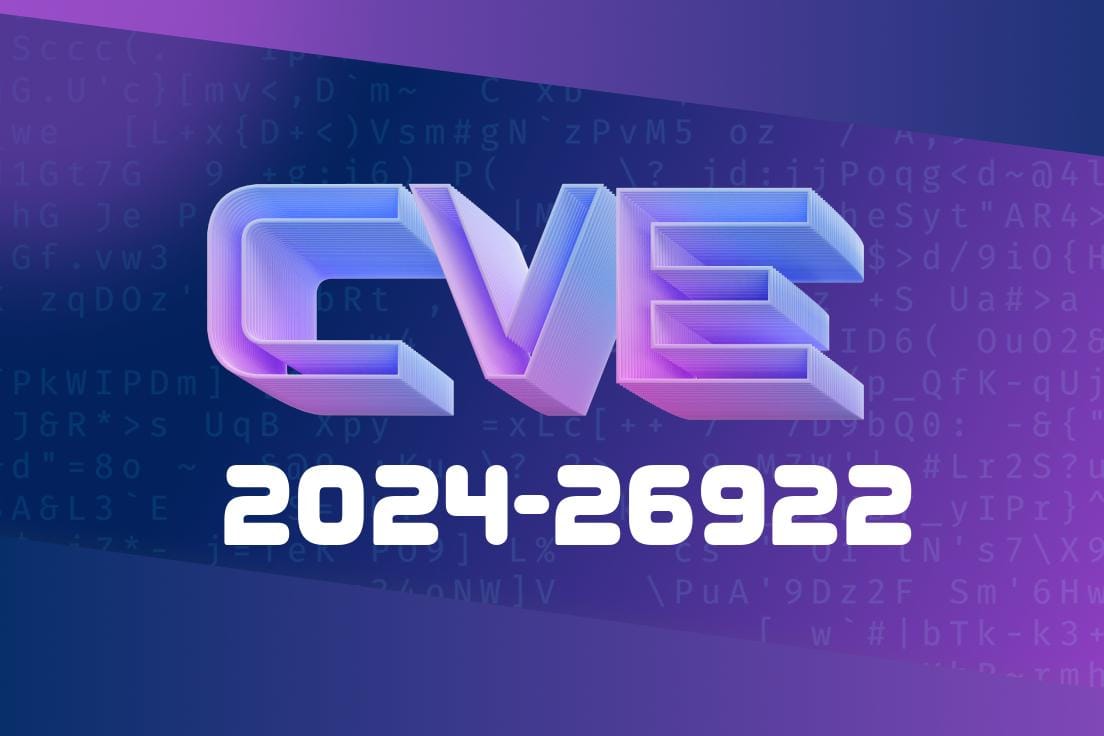On February 29, 2024, a security vulnerability was identified in the Linux kernel’s AMD GPU (amdgpu) Direct Rendering Manager (DRM) code. It has been assigned the identifier CVE-2024-26922. The vulnerability involves improper validation of parameters passed to certain buffer object (BO) mapping operations inside the amdgpu driver, a component widely used for AMD graphics cards under Linux.
In this post, we’ll dig into what happened, why it matters, and how an attacker could exploit this flaw. We’ll include real code snippets, a look at the patch, and links to original references.
## What’s drm/amdgpu and Why Does It Matter?
The drm/amdgpu subsystem is a part of the Linux kernel responsible for handling graphics output on AMD GPUs. It manages memory, handles mapping/unmapping of buffer objects, and provides an interface for userspace (like desktop environments and games) to interact with the GPU hardware.
Whenever a user or program wants the GPU to process some graphics data, it creates "buffer objects" (BOs)—chunks of memory—that need to be mapped for the GPU to access. Functions like amdgpu_vm_bo_map, amdgpu_vm_bo_replace_map, and amdgpu_vm_bo_clearing_mappings manage these mappings.
If parameters passed to these functions aren’t properly checked, attackers with enough privileges might abuse the flaw to cause memory corruption, crash the kernel, or potentially escalate their privileges.
The Problem: Insufficient Parameter Validation
Before the fix, parameter checks for mapping operations were scattered and sometimes not thorough. A malicious or buggy userspace program (such as a rogue OpenGL/Vulkan user or compromised X server) could pass specially crafted arguments to these amdgpu interfaces, leading to:
Potential kernel panics or controlled code execution
The root cause: The functions lacked a centralized, thorough way to vet the arguments, such as offsets, mapping lengths, and types, before proceeding with mapping changes.
Here’s a stylized snippet showing the problem
int amdgpu_vm_bo_map(struct amdgpu_device *adev,
struct amdgpu_vm *vm,
struct amdgpu_bo_va *bo_va,
u64 offset, u64 size, ...) {
// ...old code had checks spread out...
// sometimes missing things, like:
if (size == )
return -EINVAL;
// (other important checks missing!)
// mapping updates happen here
}
The Fix: Unified and Clear Parameter Validation
The maintainers addressed CVE-2024-26922 by centralizing all parameter checks into one shared validation function, ensuring that every mapping operation validates its arguments _the same way, every time_.
Some Patch Highlights
You can see the fix here:
static int amdgpu_vm_bo_validate_params(u64 offset, u64 size, ...){
if (!size || offset + size < offset)
return -EINVAL; // Detect overflow or zero size
// Add more sanity checks here as needed
return ;
}
int amdgpu_vm_bo_map(..., u64 offset, u64 size, ...) {
ret = amdgpu_vm_bo_validate_params(offset, size, ...);
if (ret)
return ret;
// Proceed with safe mapping
}
Instead of relying on copies of parameter checks, now every mapping or unmapping operation calls this validator up front.
Potential Attack Scenarios
1. Trigger a kernel panic: By mapping BOs with improper parameters (like huge sizes/offsets), the kernel could crash, resulting in a denial of service.
2. Memory corruption and privilege escalation: If insufficient checks allow mappings outside legal boundaries, a user could manipulate kernel memory structures and possibly run arbitrary kernel code.
Here’s a stylized example of how an attacker might try to exploit the bug via a crafted IOCTL from userspace (Python pseudocode for illustration):
from fcntl import ioctl
import os, struct
# Open the amdgpu device node
fd = os.open("/dev/dri/card", os.O_RDWR)
# Prepare a malicious mapping with a bad offset/size
fake_offset = xfffffffffffffff
fake_size = xfff # would trigger integer overflow
# Example IOCTL code for DRM_AMDGPU_GEM_MMAP
DRM_IOCTL = x00 # Placeholder value!
req = struct.pack("QQ", fake_offset, fake_size)
# This would send bogus parameters to the kernel
ioctl(fd, DRM_IOCTL, req)
With the old, unpatched kernel, this could lead to a crash. On patched kernels, the validation routine halts such dangerous calls before they do harm.
References
- Upstream Fix Commit — kernel.org
- CVE-2024-26922 entry at cve.mitre.org
- drm/amd: Validate parameters of bo mapping ops — LWN.net
What Should You Do?
- Update Your Kernel: If you use AMD GPUs on Linux, upgrade to a kernel version containing the fix (v6.8-rc3+ or applicable backports).
- Limit GPU Device Access: Make sure only authorized users can access your system's /dev/dri/card* nodes.
- Monitor Security Advisories: Watch for distribution patches if you’re running enterprise Linux.
Conclusion
CVE-2024-26922 shows how small validation oversights in kernel code can have big security impacts. The fix centralizes parameter checks for all affected operations, making it much harder for bugs like this to slip through in the future.
If you’re an admin or developer on Linux with AMD graphics support, patch promptly!
*This post aims to provide clear, actionable information about CVE-2024-26922. Please visit referenced links for more technical details and the latest updates.*
Timeline
Published on: 04/23/2024 13:05:04 UTC
Last modified on: 12/23/2025 19:08:24 UTC
